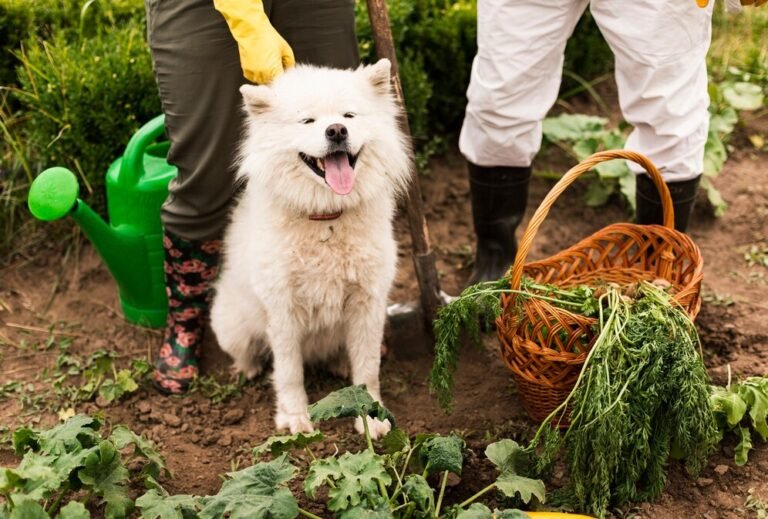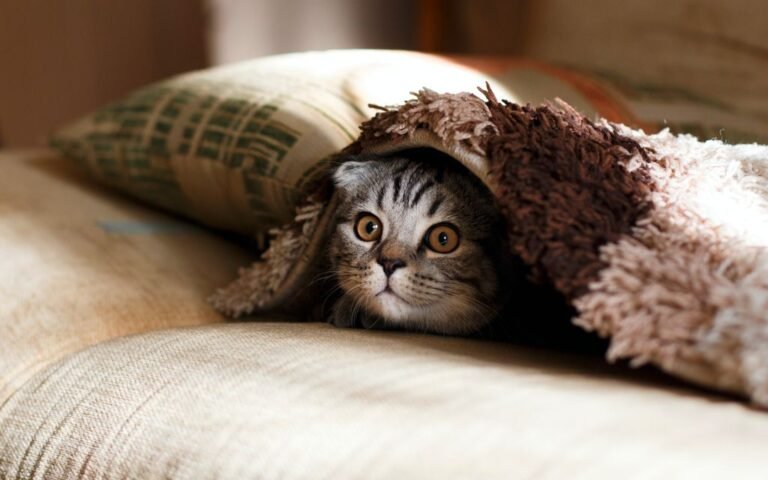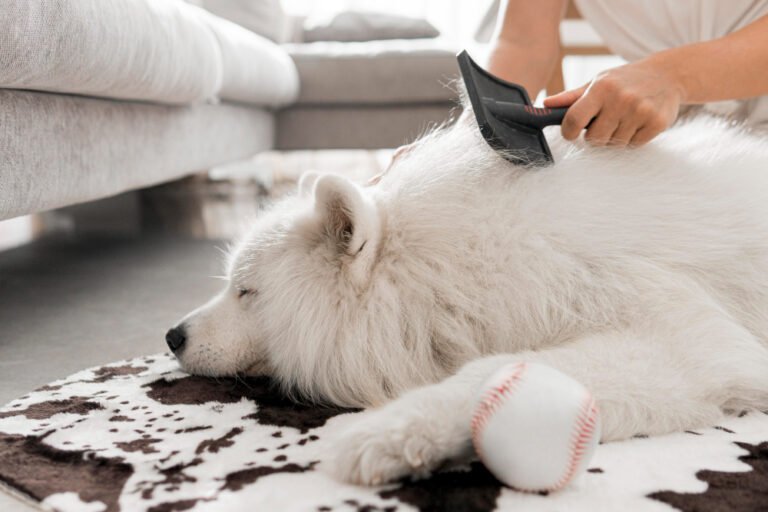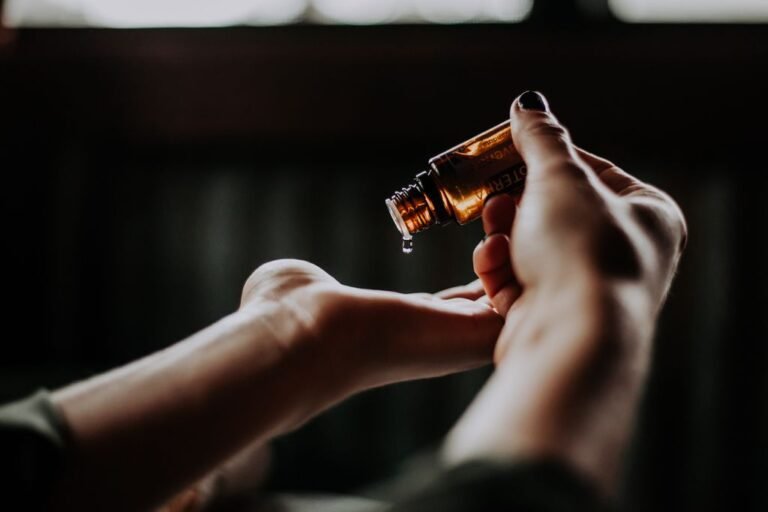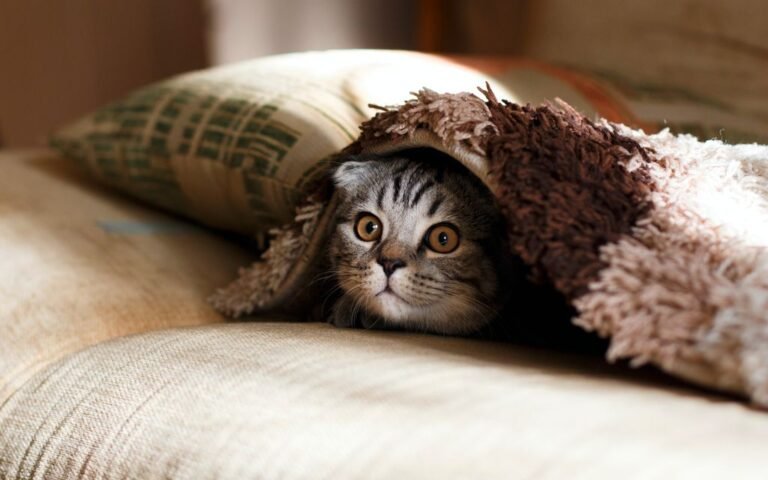Creating a Routine: How Structure Benefits Your Pet’s Mental Health
Creating a routine for your pet is not only beneficial for their physical health, but also for their mental well-being. Research shows that a structured daily routine reduces anxiety and provides a sense of security and stability for pets. In this article, we will explore the importance of routine for your pet’s mental health and provide practical tips on how to establish a daily routine that includes regular feeding times, exercise, mental stimulation, sleep, and socialization. Here are the key takeaways from this article:
Key Takeaways
- Routine provides a sense of security and stability for your pet, reducing anxiety and uncertainty-related stress.
- Regular feeding times help establish a structured daily routine and prevent overfeeding and obesity.
- Creating a consistent exercise schedule keeps your pet physically active and mentally stimulated.
- Incorporating mental stimulation activities, such as puzzle toys or training sessions, helps keep your pet’s mind engaged and prevents boredom.
- A comfortable sleep environment and a bedtime routine contribute to your pet’s overall well-being and mental health.
Why Routine is Important for Your Pet

Understanding the Benefits of Routine
Research supports the positive impact of routine pet care on mental health. Regular activities like feeding, grooming, and play contribute to a structured daily routine, reducing uncertainty-related anxiety. Additionally, studies indicate that the tactile engagement involved in grooming and touch during play promotes connection co-regulation, effectively reducing stress and anxiety.
Knowing that pets thrive on routine, feeding becomes more than a necessity — it transforms the daily routine into a bonding experience. By establishing regular feeding times, you create a sense of anticipation and security for your pet. It also allows you to monitor their portions and number of meals, ensuring they receive the right amount of nutrition for their health and well-being.
Incorporating a structured routine into your pet’s life can have numerous benefits. It provides a sense of stability and security, reduces stress and anxiety, and strengthens the bond between you and your pet. By following a routine, you are creating a positive environment that promotes your pet’s mental health and overall well-being.
How Routine Helps Your Pet’s Mental Health
Research supports the positive impact of routine pet care on mental health. Regular activities like feeding, grooming, and play contribute to a structured daily routine, reducing uncertainty-related anxiety. Additionally, studies indicate that the tactile engagement involved in grooming and touch during play promotes connection co-regulation, effectively reducing stress and anxiety.
Understanding that pets thrive on routine, feeding becomes more than a necessity — it transforms into a ritual, a moment of shared connection. Research on attachment in human-animal relationships emphasizes how
Creating a Sense of Security and Stability
Consistency builds trust and a sense of security. Providing a secure and quiet space where your pet feels safe is essential. By establishing a routine, you can create a predictable environment that helps your pet feel secure and reduces stress. This consistency is particularly beneficial for dogs with anxiety or those who struggle with changes in their environment.
A set routine also offers peace of mind for busy pet parents. Knowing that your pet is in a safe and caring environment provides reassurance and allows you to focus on your daily tasks. Additionally, a routine can be invaluable for dogs in daycare, as they quickly adapt to the schedule and find comfort in the predictability.
To create a sense of stability, consider incorporating regular activities like feeding, grooming, and play into your pet’s routine. These activities not only contribute to a structured daily schedule but also promote connection and reduce anxiety. Research shows that consistent care, particularly during feeding times, fosters a strong bond between pet and owner. Exploring new environments during walks or playtime further enhances the bonding experience.
Remember, routine is key to your pet’s mental well-being. By providing a stable and predictable environment, you are helping them feel secure and supported.
Establishing a Daily Routine

Setting Regular Feeding Times
Setting regular feeding times for your pet is an essential part of creating a structured daily routine. By establishing a consistent schedule for meals, you provide a sense of predictability and stability for your pet. This helps them feel secure and reduces uncertainty-related anxiety. Feeding becomes more than just a necessity; it becomes a ritual, a moment of shared connection between you and your pet.
To ensure that your pet’s feeding schedule is effective, consider the following tips:
- Consistency: Feed your pet at the same times every day to establish a routine.
- Portion Control: Measure your pet’s food to avoid overfeeding and maintain a healthy weight.
- Quality Food: Choose a high-quality pet food that meets your pet’s nutritional needs.
Remember, setting regular feeding times not only provides nourishment for your pet but also strengthens the bond between you. It’s a simple yet powerful way to show your love and care for your furry friend.
Creating a Consistent Exercise Schedule
Regular exercise is crucial for your pet’s physical health and mental well-being. It helps them burn off excess energy, promotes cardiovascular health and muscle development, and reduces the risk of obesity and related health issues. Incorporating a consistent exercise schedule into your pet’s routine ensures that they receive adequate physical activity. Whether it’s daily walks, playtime, or agility exercises, engaging in these activities keeps your pet active and fit. By making exercise a regular part of your pet’s routine, you are prioritizing their overall well-being and contributing to their happiness and longevity.
Incorporating Mental Stimulation Activities
Engaging in training sessions with dogs and cats becomes a mindful activity. The focus required to communicate effectively with a pet, understand their cues, and reinforce positive behaviors encourages individuals to be present in the moment. This mindful engagement fosters a break from stressors and contributes to a more centered and focused state of mind. With dogs, the added benefit of exercise comes into play. Daily walks, training sessions, and playtime contribute to increased physical activity. Exercise not only improves the mood by releasing endorphins but also positively impacts overall health. Importantly, these activities
The Role of Sleep in Your Pet’s Routine

Creating a Comfortable Sleep Environment
A comfortable sleep environment is essential for your pet’s overall well-being. Creating a cozy and inviting space where your pet can rest and relax is key to ensuring they get the quality sleep they need. Providing a comfortable bed or sleeping area that is the right size for your pet is important. Consider their size and sleeping habits when choosing a bed or mat. You may also want to add soft blankets or pillows to make the space even more comfortable. In addition to the physical environment, establishing a bedtime routine can help signal to your pet that it’s time to wind down and sleep. Try to keep the routine consistent, with activities such as a calming walk or playtime followed by a quiet and peaceful environment. Avoid loud noises or bright lights that may disrupt your pet’s sleep. By creating a comfortable sleep environment and establishing a bedtime routine, you can promote better sleep for your pet and contribute to their overall mental health and well-being.
Establishing a Bedtime Routine
Consistency builds trust and a sense of security. Providing a secure and quiet space for your pet to rest is essential in establishing a bedtime routine. This designated rest area should be a place where your pet feels safe and comfortable. By consistently following a bedtime routine, you are creating a predictable environment that helps your pet relax and prepare for sleep. This routine can include activities such as dimming the lights, providing a cozy bed, and engaging in calming activities like gentle brushing or massage. By incorporating these elements into your pet’s bedtime routine, you are promoting a peaceful and restful night’s sleep for your furry friend.
The Importance of Adequate Rest
Adequate rest is essential for your pet’s overall well-being. Just like humans, pets need quality sleep to recharge and rejuvenate. During sleep, their bodies repair and regenerate, promoting optimal physical and mental health. Skin care products can also be beneficial during rest time, as they help maintain healthy skin and coat. Providing a comfortable sleep environment, such as a cozy bed or designated sleeping area, is important for your pet to feel safe and secure. Establishing a bedtime routine can signal to your pet that it’s time to wind down and prepare for rest. Consistency in their sleep schedule can contribute to better sleep quality and overall relaxation.
Maintaining a Balanced Diet

Choosing the Right Food for Your Pet
When it comes to choosing the right food for your pet, there are a few key factors to consider. First, consider your pet’s specific dietary needs. Different pets have different nutritional requirements, so it’s important to choose a food that is tailored to their species and age. Second, look for high-quality ingredients. Just like with our own diets, the quality of the ingredients in your pet’s food can have a big impact on their overall health and well-being. Finally, avoid overfeeding and obesity. It can be tempting to give your pet extra treats or larger portions, but it’s important to maintain a balanced diet to prevent weight gain and related health issues. By following these guidelines, you can ensure that your pet is getting the nutrition they need to thrive.
Establishing Mealtime Rituals
Establishing mealtime rituals for your pet is an important part of their daily routine. It goes beyond simply providing nourishment; it becomes a special moment of connection between you and your furry friend. Research shows that consistent care during feeding times is crucial for building a strong bond between pet and owner. By creating a structured mealtime routine, you are not only ensuring your pet’s physical well-being but also fostering a sense of security and stability.
To establish mealtime rituals, consider the following:
- Set regular feeding times: Having a consistent schedule for meals helps your pet anticipate and look forward to their food.
- Create a designated feeding area: This provides a sense of familiarity and helps your pet associate that space with mealtime.
- Use interactive feeding toys: These toys not only make mealtime more engaging but also provide mental stimulation for your pet.
Remember, mealtime rituals are not just about nourishment; they are an opportunity to strengthen the bond with your pet and create a sense of routine and comfort in their lives.
Avoiding Overfeeding and Obesity
Overfeeding can lead to weight gain and obesity in pets. It’s important to establish mealtime rituals and portion control to ensure your pet maintains a healthy weight. Avoid free-feeding and instead, provide measured meals at regular intervals throughout the day. This helps prevent excessive calorie intake and promotes a balanced diet. Additionally, incorporating regular exercise into your pet’s routine can help burn calories and maintain muscle tone. Remember to consult with your veterinarian to determine the appropriate amount of food for your pet’s age, breed, and activity level.
Socialization and Playtime

The Benefits of Regular Social Interaction
Regular social interaction with your pet can have a positive impact on both your mental and emotional well-being. It provides an opportunity for you to get out and meet new people and makes socialization easier. This is especially important because isolation often worsens anxiety and depression. Additionally, spending time with your pet can lead to improved companionship and decreased loneliness. Pets provide unconditional love and acceptance, which can be particularly beneficial for individuals struggling with anxiety, depression, OCD, autism, ADHD, or other clinical issues. They offer a sense of comfort and support during difficult times.
Furthermore, regular social interaction with your pet can contribute to improved feelings of self-worth and self-esteem. When we are loved by our pets, we simply feel better about ourselves. They provide a constant source of affection and validation, boosting our confidence and overall well-being.
In addition to these emotional benefits, socializing with your pet can also have practical advantages. It can help you meet other pet owners and engage in pet-related activities, fostering a sense of community and connectedness. This social aspect of owning a pet can be especially valuable in today’s world, where social interactions can be challenging. By participating in pet-related events or joining pet communities, you can expand your social network and form meaningful connections.
To fully enjoy the benefits of regular social interaction with your pet, it’s important to prioritize quality time together. Make sure to set aside dedicated time for activities such as playing, walking, or simply cuddling. These moments of connection not only strengthen the bond between you and your pet but also provide opportunities for relaxation and stress relief. Remember, your pet relies on you for companionship and interaction, so make the most of these precious moments together.
In summary, regular social interaction with your pet offers numerous benefits for your mental and emotional well-being. It promotes socialization, reduces feelings of loneliness, enhances self-worth and self-esteem, and fosters a sense of community. By prioritizing quality time with your pet, you can experience the joy and therapeutic effects that come with this special bond.
Incorporating Playtime into Your Pet’s Routine
Engage in activities that your pet loves such as playing, going on walks, or simply cuddling. This not only enhances your connection but also provides a sense of joy and companionship for you both. I try to spend special time with each of my furry family members every day because they deserve it but it’s also good for me too!
- Incorporate Regular Exercise: Many pets benefit from regular exercise and engaging in physical activities with them is good for you too! Exercise is known to reduce stress and anxiety, so playtime, walks, or outdoor activities are great options.
Remember to prioritize quality time with your pet and make playtime a regular part of their routine. It’s a wonderful way to bond and keep both of you happy and healthy.
Finding the Right Balance
Carefully considering lifestyle, preferences, and time commitment for pet care. When encountering a potential pet, there’s a relational aspect involved — tuning into your body’s response becomes a guide. Notice how you feel in the presence of a pet, observing if their calmness resonates with you as you pet or hold them. Touch, in this context, becomes a means of connection and understanding.
Visualizing a typical day with a potential pet adds a layer of relational dynamics. Envisioning the changes to your daily schedule, potential hurdles, and adjustments required for your pet’s well-being helps build a deeper connection. Honesty becomes paramount as you explore your capacity to make necessary changes and commit to meeting your pet’s needs. An active pet might be a fitting companion for those seeking physical activity and improved mood. On the other hand, others discover tranquility in the presence of reptiles or fish, engaging in mindful observation to reduce anxiety and foster introspection. Birds, for example, bring unique benefits to your daily routine, such as their melodious songs and vibrant plumage.
Carefully considering lifestyle, preferences, and time commitment for pet care. When encountering a potential pet, there’s a relational aspect involved — tuning into your body’s response becomes a guide. Notice how you feel in the presence of a pet, observing if their calmness resonates with you as you pet or hold them. Touch, in this context, becomes a means of connection and understanding.
Visualizing a typical day with a potential pet adds a layer of relational dynamics. Envisioning the changes to your daily schedule, potential hurdles, and adjustments required for your pet’s well-being helps build a deeper connection. Honesty becomes paramount as you explore your capacity to make necessary changes and commit to meeting your pet’s needs. An active pet might be a fitting companion for those seeking physical activity and improved mood. On the other hand, others discover tranquility in the presence of reptiles or fish, engaging in mindful observation to reduce anxiety and foster introspection. Birds, for example, bring unique benefits to your daily routine, such as their melodious songs and vibrant plumage.
Socialization and playtime are essential for the overall well-being of pets. It allows them to develop important social skills, burn off excess energy, and strengthen the bond with their owners. At Whisker Wellbeing, we understand the importance of providing holistic and natural care for pets. Our products, including CBD, hemp, and other natural options, are specifically designed to enhance the physical and emotional quality of life for cats and dogs. Whether you’re looking for toys to stimulate playtime or supplements to support their health, we have everything you need. Visit our website today to explore our wide range of products and give your furry friends the care they deserve.
Conclusion
In conclusion, creating a routine for your pet can have significant benefits for their mental health. Research shows that regular activities like feeding, grooming, and play contribute to a structured daily routine, reducing anxiety and promoting a sense of connection. By integrating your pet into your daily habits and building small habits together, you can create a sense of accountability and predictability, which can help alleviate stress and improve well-being. Pets have always played a pivotal role in enhancing our mental well-being, providing emotional support and companionship. By understanding and harnessing the therapeutic potential of our furry friends, we can create a stable and nurturing environment for both ourselves and our pets. So why not start incorporating a routine into your pet’s life today and experience the positive impact it can have on their mental health?
Frequently Asked Questions
Why is routine important for my pet?
Routine is important for your pet because it provides a sense of security and stability. It helps reduce uncertainty-related anxiety and promotes mental well-being.
How does routine help my pet’s mental health?
Routine helps your pet’s mental health by reducing stress and anxiety. It provides a structured daily routine that promotes a sense of predictability and eases their mind.
How can I create a sense of security and stability for my pet?
You can create a sense of security and stability for your pet by establishing a daily routine that includes regular feeding times, consistent exercise schedules, and incorporating mental stimulation activities.
What are some tips for setting regular feeding times?
Some tips for setting regular feeding times include feeding your pet at the same time every day, using portion control to avoid overfeeding, and providing a quiet and calm environment during mealtime.
How can I incorporate mental stimulation activities into my pet’s routine?
You can incorporate mental stimulation activities into your pet’s routine by providing puzzle toys, interactive games, and training sessions. These activities engage their mind and prevent boredom.
How do I choose the right food for my pet?
To choose the right food for your pet, consider their age, breed, size, and any specific dietary needs or restrictions. Consult with your veterinarian for recommendations.


